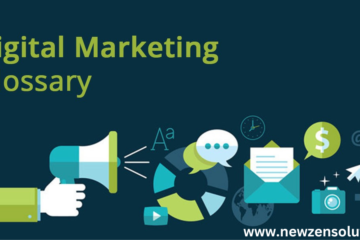In today’s fast-paced world, digital marketing has become the backbone of most businesses. The internet has revolutionized how companies connect with customers, and understanding the fundamentals of digital marketing is essential for any business seeking success in the online space.
Digital marketing is a vast field that encompasses various techniques and strategies to promote products and services using digital channels. In this article, we will dive into the fundamental pillars of digital marketing that every business should understand and implement.
1. Search Engine Optimization (SEO)
Search Engine Optimization (SEO) is one of the most important aspects of digital marketing. SEO is the process of optimizing your website to rank higher on search engine results pages (SERPs) to increase organic traffic.
Key SEO Practices:
- Keyword Research: Identifying relevant keywords your target audience is searching for is crucial. Tools like Google Keyword Planner and SEMrush can help.
- On-page Optimization: This includes optimizing title tags, meta descriptions, URLs, and content to make it more SEO-friendly.
- Off-page Optimization: Building backlinks from authoritative websites is essential for improving domain authority.
- Technical SEO: This involves improving website speed, mobile-friendliness, and ensuring the site is easily crawled by search engines.
- Content Creation: High-quality, relevant, and engaging content helps your site rank better. Blogs, articles, and product descriptions are crucial for SEO.
By focusing on SEO, businesses can significantly increase their visibility and drive organic traffic to their websites without the need for paid advertising.
2. Content Marketing
Content marketing involves creating and distributing valuable, relevant, and consistent content to attract and engage a target audience. The main goal is to provide useful information that will lead to conversions and build customer loyalty.
Types of Content Marketing:
- Blog Posts: Writing informative, well-researched blog posts helps in driving organic traffic through SEO.
- Videos: Video content, such as tutorials, product demonstrations, or customer testimonials, can increase engagement and conversions.
- Infographics: Infographics are visually appealing and help in simplifying complex information, making it easier to understand.
- Ebooks and Whitepapers: These are used to collect leads through gated content and can be used to establish authority in a niche.
- Podcasts: Audio content has gained popularity, and podcasts are an excellent way to engage audiences while providing value.
Content marketing not only helps with SEO but also establishes your brand as an authority in your industry, driving trust and loyalty from your audience.
3. Social Media Marketing (SMM)
Social media marketing (SMM) involves using platforms like Facebook, Instagram, LinkedIn, and Twitter to promote your products or services. Social media has become a vital tool for engaging with customers, building brand awareness, and generating leads.
Key SMM Strategies:
- Content Creation: Share engaging and valuable content on your social media platforms to attract and retain followers.
- Paid Ads: Platforms like Facebook and Instagram offer targeted ad campaigns that can be highly effective in reaching specific customer segments.
- Influencer Marketing: Partnering with influencers in your industry can help expand your reach and build credibility.
- Engagement: Interact with followers through comments, likes, and direct messages to build a community around your brand.
By effectively utilizing social media platforms, businesses can build a strong online presence, engage with their audience, and boost sales.
4. Pay-Per-Click (PPC) Advertising
Pay-per-click (PPC) advertising is a type of digital marketing where businesses pay for each click on their ads. The most popular PPC platform is Google Ads, but businesses also use platforms like Bing Ads and social media networks for paid advertising.
How PPC Works:
- Keyword Targeting: Just like SEO, keyword research is vital in PPC. Your ad is shown when someone searches for the keywords you bid on.
- Budgeting: You set a daily or monthly budget for how much you’re willing to spend on each click.
- Ad Copywriting: Creating compelling ad copy that entices users to click is crucial. The ad must be relevant and engaging.
- Landing Pages: Ensure that the landing pages where users land after clicking the ad are optimized for conversions.
PPC can deliver instant traffic and generate high-quality leads, making it a powerful tool in any digital marketing strategy.
5. Email Marketing
Email marketing is one of the oldest and most effective forms of digital marketing. Despite the rise of social media and other marketing channels, email marketing remains a powerful tool for communicating directly with your audience.
Benefits of Email Marketing:
- Cost-Effective: Compared to traditional forms of marketing, email marketing is relatively inexpensive.
- Personalization: Email allows you to send personalized messages to customers based on their behavior, location, and interests.
- Automation: Tools like Mailchimp and HubSpot allow businesses to automate their email campaigns, ensuring timely and consistent communication with customers.
- Segmentation: Segment your email list to send targeted messages to different customer groups, increasing relevance and engagement.
Effective email marketing campaigns can lead to higher conversions, repeat purchases, and improved customer loyalty.
6. Affiliate Marketing
Affiliate marketing is a performance-based marketing strategy where businesses reward affiliates (partners) for driving traffic or sales to their websites through their marketing efforts. It’s a great way to expand your reach by leveraging the networks of other individuals or businesses.
How Affiliate Marketing Works:
- Affiliate Partners: Choose affiliates who have an established audience and align with your brand values.
- Tracking and Reporting: Use affiliate marketing platforms to track performance, sales, and commissions.
- Commission Structure: Set up a competitive and transparent commission structure to motivate affiliates to drive sales.
Affiliate marketing allows businesses to expand their reach without taking on the full financial risk of paid advertising.
7. Online Public Relations (PR)
Online PR is about managing your brand’s reputation and building relationships with online influencers, bloggers, journalists, and customers. Online PR can help improve brand awareness, trust, and credibility.
Strategies for Effective Online PR:
- Press Releases: Share news, updates, and milestones about your business through press releases.
- Influencer Outreach: Build relationships with influencers who can promote your business to a broader audience.
- Customer Reviews: Encourage customers to leave positive reviews online to improve your brand’s reputation.
A strong online PR strategy can help your business gain exposure, improve credibility, and manage its reputation effectively.
Conclusion
Understanding the fundamentals of digital marketing is key to creating a comprehensive online marketing strategy. Whether it’s through SEO, content marketing, social media, PPC, email marketing, or affiliate marketing, the right combination of digital marketing channels can help your business thrive in the online space.
By focusing on these fundamental strategies, businesses can increase their visibility, reach their target audience more effectively, and ultimately drive sales and growth. Stay updated with the latest digital marketing trends, and adapt your strategies to stay ahead in the competitive online landscape.



